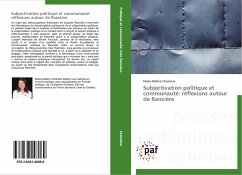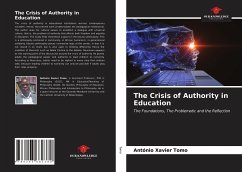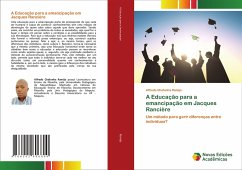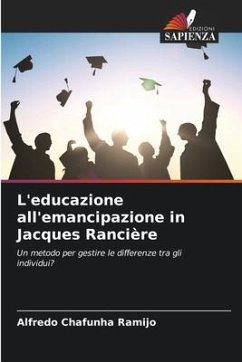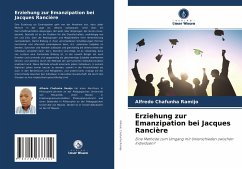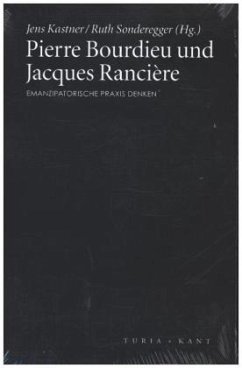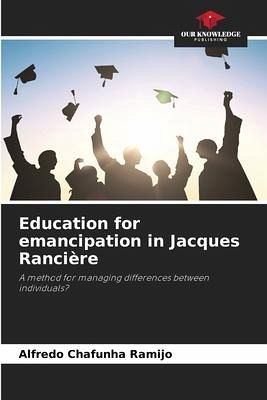
Education for emancipation in Jacques Rancière
A method for managing differences between individuals?
Versandkostenfrei!
Versandfertig in 6-10 Tagen
55,99 €
inkl. MwSt.

PAYBACK Punkte
28 °P sammeln!
An education for emancipation starts from the assumption that every human being is capable of building knowledge without a relation of domination of the one who knows over the one who must learn. Therefore, it constitutes a problem for all societies, whatever the place and time to think about the condition and possibilities for its realization. So that education in its various shades (formal, non-formal and informal) may emancipate, that is, build autonomous subjects in thinking, speaking and acting, and, at the same time, manage the differences of individuals, as J. Rancière suggests, it is ...
An education for emancipation starts from the assumption that every human being is capable of building knowledge without a relation of domination of the one who knows over the one who must learn. Therefore, it constitutes a problem for all societies, whatever the place and time to think about the condition and possibilities for its realization. So that education in its various shades (formal, non-formal and informal) may emancipate, that is, build autonomous subjects in thinking, speaking and acting, and, at the same time, manage the differences of individuals, as J. Rancière suggests, it is necessary that it: first, be a horizontal education where both citizens and educator and learner can recognize each other as being equal subjects; and, second, be practiced through the method of permanent self-construction. This method, on the one hand, allows every individual to become better and better in his or her daily life, both in personality and in knowledge and skills, and on the other hand, it generates the differences between individuals in the same society, which are justified by the belief of their inequality.






